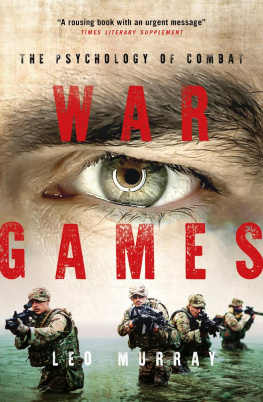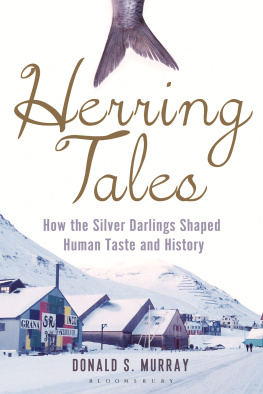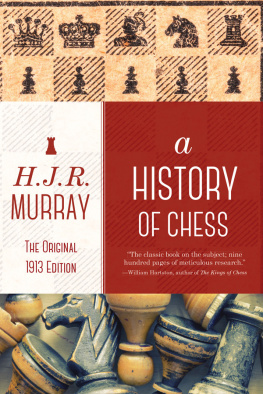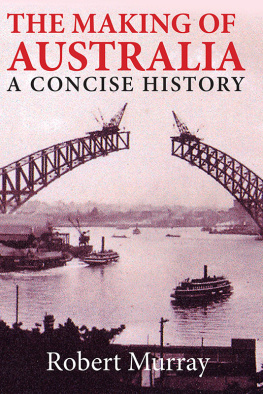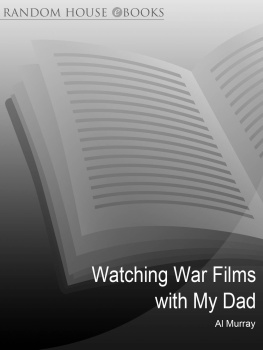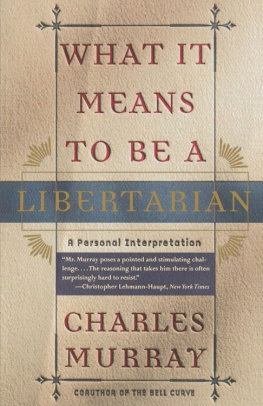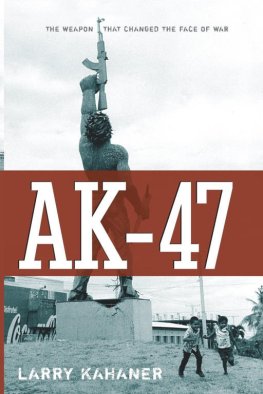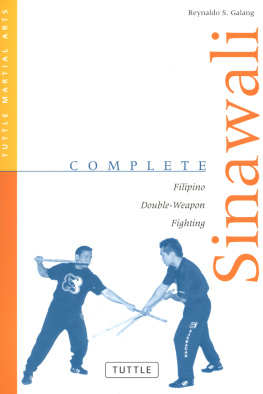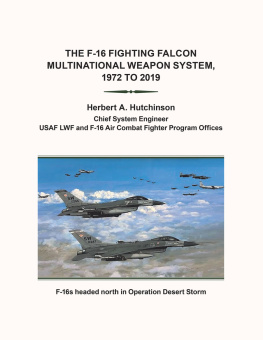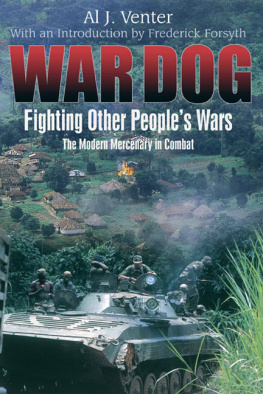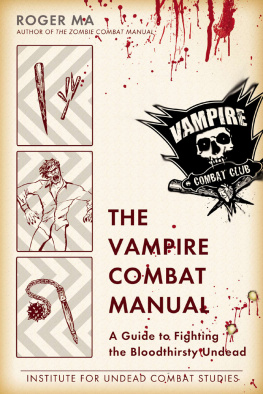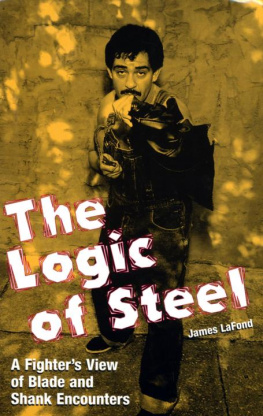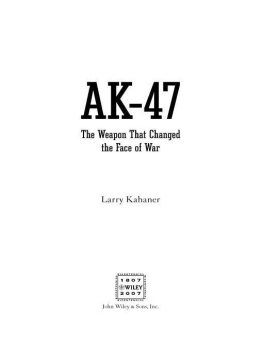Praise for War Games
Leo Murrays War Games is a seriously good piece of work. Focusing on the close tactical level where battle contact takes place, it shows what is going through soldiers minds and why, and how to exploit it to win. It shows what we have forgotten and need to remember . And it sets it out very clearly, pulling no punches. I have been there and done that as a soldier and I have studied soldiers at war for most of my adult life, and I cannot fault this book. Anyone with even the slightest interest in war should read it. Everyone directly or indirectly involved in making decisions connected to war MUST read it. Why? Because it tells it like it is, and it tells it very well.
Dr Charles Kirke, Lecturer in Military Anthropology and Human Factors, Cranfield University Defence Academy
I wish I could have read this when I was an officer cadet or a platoon commander or a company commander, or when writing army doctrine.
Leo Murray has achieved the seemingly impossible: taken an arcane, complex but vitally important subject, stripped it down and explained it so that the layman can understand it.
Many books and articles point towards the crucial importance of the human, behavioural aspects of combat. Now, for the first time, we have a book which tells us what the critical behaviour is; how important it is; and (when possible) why it works.
Murray has spent decades working in this area. He has both a deep professional knowledge of psychology and years of experience capturing information, analysing and assessing it. As War Games shows, he can also tell the story well: simply, clearly and in a highly readable way. He uses real soldiers stories, many of which he recorded himself.
This book could save lives: those of our soldiers, next time we ask them to fight; and those of our enemies, if theyre lucky. Just as importantly, this book could help commanders win battles faster and at less cost. Unfortunately, it also explains why were not likely to give our soldiers and commanders that chance. Unless, that is, some of those commanders read it and do something about it.
Everyone involved in the sharp end of war should read War Games.
Dr Jim Storr, defence analyst and author of The Human Face of War
CONTENTS
When War Games was first published, British and American soldiers were still mired in the fight for Afghanistan; trying to build a country with explosives, without even the basic skills needed to win the fight. The Afghan war followed decades of our troops being managed as capability delivery platforms, while enemy soldiers were targets for kinetic effects. Humans had been obscured by buzzwords.
The failure to see combat soldiers as human precluded the use of the tactics that are essential for making enemy soldiers surrender. And it is only when enough soldiers surrender that they, their comrades and leaders really accept defeat and start negotiating peace. As the armed branches of neoconservatives and neoliberals are keen to point out, every insurgent killed simply inspires two more. Yet we kept on killing. Somehow, the techniques that ordinary soldiers had used to make Nazis surrender werent tried on Afghan farmhands. So even with a kill ratio of twenty-to-one, we still lost.
As the war dragged on, it became increasingly difficult to motivate Western combat soldiers even for brief periods. While publicly praising our brave boys and girls, leaders slyly bemoaned their collapse in morale the platforms werent delivering the capability like they were supposed to. When soldiers refused to go outside the wire without air cover or a credible explanation of what the war was for, the war fizzled out. Leaders got bored and brought most of the troops home.
Lessons were learned by the bad guys. Having been forced to make the most of their meagre resources, rebel bandits had developed small units of suitably trained and motivated soldiers. These were used to eject larger government forces from key corners of Iraq and Afghanistan. They moved quickly and stealthily, tricking the defenders into thinking they were outflanked and outgunned. Their lessons spread to Syria, Egypt, Nigeria and beyond. It often takes years before these pockets of misery are cleared by foreign-backed armies armies that succeed only when they outnumber the enemy thirty-to-one. Yet the core of the enemy force slips away from the rubble to set up shop elsewhere. Their use of tactical psychology has fuelled a remarkably efficient business model.
Lessons were learned by the good-ish guys too. Having realised soldiers are not automata, Western and Eastern governments are now investing in real killing machines: war robots with lightning-fast reflexes, unhindered by fear, fatigue, pity or common sense. Yet autonomous war machines will need to kill a lot of people to counter the rage they will generate. Every enemy killed breeds two more, but every enemy killed by a robot will breed a dozen. Its like defence planners have taken the Terminator films as their blueprint for excellence. They havent spotted all the humans fighting back or the earth reduced to wasteland.
War Games is intended to show that we can win by accepting human frailty rather than hiding from it.
Leo Murray
January 2018
On the edge of an Afghan poppy field, a young soldier gets his first taste of battle. He crouches, waist deep, in the rancid sludge and water of an irrigation ditch as bullets fly over his head. He has been on the move since dawn, looking for trouble but secretly hoping not to find it. Already near exhaustion, buoyed only by emergency reserves of adrenalin, he tries to wade through the mire while keeping his head low enough to avoid the fatal shot.
The intense heat adds dehydration to stress and fatigue, making spots and sparks dance before his eyes. Thirst, fear and the surprising, desperate joy of battle rush up from his belly, making it difficult to see or think straight. His friends are shouting but he cannot hear their words over the noise of battle and his own laboured breathing.
When he risks a quick look over the lip of the ditch, he can see no enemy and has only the vaguest notion of where they might be. A mental programming older than humanity works outside his conscious control to force a rapid cycle of scanning and fixation, widening and narrowing his perception of events. Time seems to slow down then speed up again, creating moments of absolute clarity and minutes of desperate confusion. Almost randomly, his attention latches onto places that could hide the enemy: a bush, a wall, a line of trees. Critical information is blocked or ignored as his brain forces blinkers onto his senses.
When he tries to return fire, his heart is running so hot that he cannot hold his assault rifle steady. Like millions of soldiers before him, he breaks cover for a second to spray a burst of fire towards a bush that might have some enemy behind it. Despite battle inoculation and a basic form of brainwashing, this burst is biased by a primal, almost imperceptible, aversion to killing and by a powerful urge to hold onto the protection of the ditch. His will to fight is twisted at the last moment so his point of aim is just a fraction off and his stream of bullets flies harmlessly into the distance.
This young soldier was brought to the war by unemployment, nationalism and machismo, but these now-distant forces cannot compete with immediate threats to his life. Like most soldiers, he would soon stop fighting were it not for the intense social pressure from the men in the ditch with him. His friends and leaders provide encouragement, unspoken threats and the example of their actions to keep him in the firing line. But if his comrades stop fighting, whether killed, wounded or pinned down by fire, fear and common sense, he will stop fighting too. Like all battles, large or small, this fight will be decided more by the psychology of close combat than by a simple body count.

